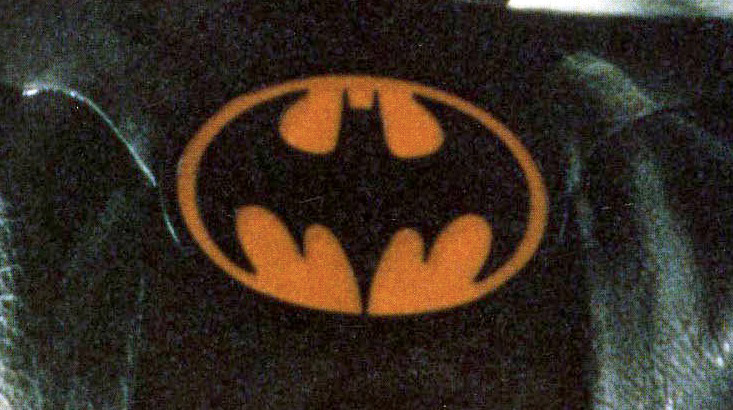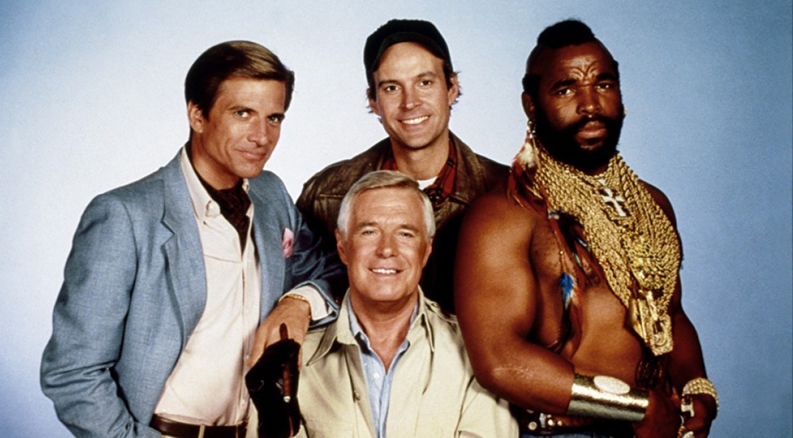June 1989: My friends and I are just a few of the hundreds of people crowding the halls at Orland Square theater, shuffling nervously with our popcorn and cokes, waiting to be admitted to a special Thursday night advance screening of Batman. The manager appears and hollers above the din: have your ticket stubs out; you need to show them again before being admitted to the theater. We grumble, but secretly we’re thrilled. This added inconvenience only confirms our belief that we’re about to witness something special: not merely a movie, but an event that really is as important as we had thought.
Most of you reading this probably don’t need to be reminded how wildly anticipated Batman was, how it seemed to promise the restoration to greatness of a character who had languished for decades in camp-TV hell (more on that later). Superman had been the movie of our childhoods: vast, sweeping, touched with reverence and just enough self-deflating humor, it sought to fill you with wonder, an ambition worthy of the greatest superhero ever. Batman, though, would be the movie of our adolescence. It wasn’t going to delight us — it was going to kick ass.
And for the most part it did. Beginning with the massive stone bat symbol that ended the opening credits, Batman was a movie of Gothic excess. From the shadowy Expressionist spires of Gotham City to Jack Nicholson’s calorie-burning turn as the Joker, everything in Batman is both exaggerated and obscured, vibrant and colorful yet hidden in shadows. Watching it joyfully that summer night, it was hard to think how it could’ve been improved: Michael Keaton was a surprisingly capable Batman (or at least a capable Bruce Wayne; as those OnStar commercials have shown, anyone with a decent chin can play Batman), the script was funny (“This town needs an enema!”), and best of all, the movie was dark-just as we knew Batman ought to be.
Except it really wasn’t.
There’s a curious disconnect between the way enthusiastic Batfans (including me) embraced the movie and what’s actually visible on screen, lo these many years later. Certainly, Batman is hardly the sunny, optimistic adventure that Superman was. Roger Ebert disliked the films partly because he always assumed that it would be fun to be Batman, as if anyone other than a borderline psychopath would look forward to donning a silly costume and placing himself in mortal danger every night. Burton, at least, wasn’t that naive, and the few moments of Batman that really qualify as “dark” are the ones where Keaton is allowed to show the toll that being Batman takes on Bruce Wayne’s psyche. We see him in his Batcave, dressed in sombre black and watching a party in his own house (Wayne Manor is more wired than the Nixon White House) from a bank of security monitors, fearfully eavesdropping on his guests; we see him rocking himself to sleep in a pair of gravity boots after a romp in the sack with Vicky Vale. Bits of disturbing ambiguity flash up here and there: when he tells Vicky that parts of rambling Wayne Manor are “very much me,” is he simply referring to the Batcave and its trove of gadgetry? Or is there still a corner of the mansion where Bruce Wayne remembers the happy childhood that was stolen from him?
Such moments are rare, and the rest of the movie is about as “dark” as a vintage Warner Brothers gangster picture, the ones that relished their anti-heroes’ nefarious exploits for 80 minutes only to gun them down mercilessly at the end (remember kids, crime doesn’t pay). From the boozy Det. Eckhart in his Columbo raincoat to Robert Wuhl’s intrepid newshound to Jack Palance as the aging-but-ineffectual crime boss, Batman calls again and again on the stylistic language of B-movie film noir, but without the deep moral ambiguity that suffused that genre at its best. In short, while it might be closer to pastiche than straight-out camp, Batman is far less dark and serious than its gloomy compositions make it appear. Even Danny Elfman’s score, still often held up as the ideal “serious” superhero movie score, is a tongue-in-cheek genre exercise; I can’t hear it without picturing vintage black and white footage of Packards and Cadillacs swinging around corners, tommy guns blazing from their windows.
There’s nothing wrong with this, of course. But I do think it’s time we all lightened up a bit and realized that if Batman took its title character out of the camp ghetto, it didn’t take him very far. Moreover, I realize as I get older that the original “Batman” TV series is nothing to be ashamed of: it’s superbly designed, funny, intelligent, and far more sophisticated than just about any other comedy on the box today. (It had the worst test scores of any ABC show up to that time, and wouldn’t stand a chance in hell of getting on the air now.) It also saved a comic series that was teetering near cancellation; the Batman films, for all their self-conscious distancing from the TV series, probably wouldn’t exist without it.
And finally, in one of those funny accidents of history, the whole process is primed to start up again. With Joel Schumacher having sunk the series into a new morass of cheesy puns, hyperkinetic editing, leather fetishism and banal homilies, Batman needs rescuing today far more than he did in 1989. Supposedly a film adaptation of Frank Miller’s terrific Year One series is now underway that promises to take Batman once again back to his dark, turbulent essence. When that summer comes I have a feeling I’ll be there again, my popcorn and coke (and ticket stub) in hand, once more eager to witness the rebirth of a legend.
Originally written for Entertainment Geekly in June 2003.



